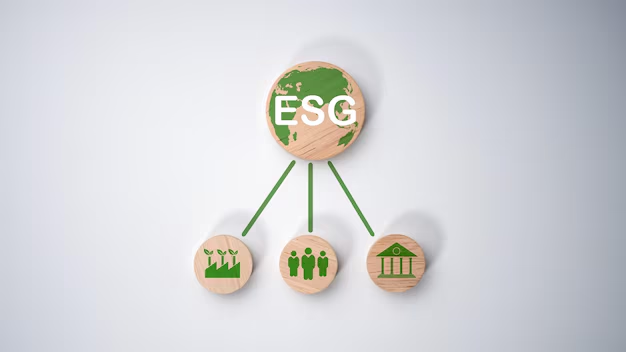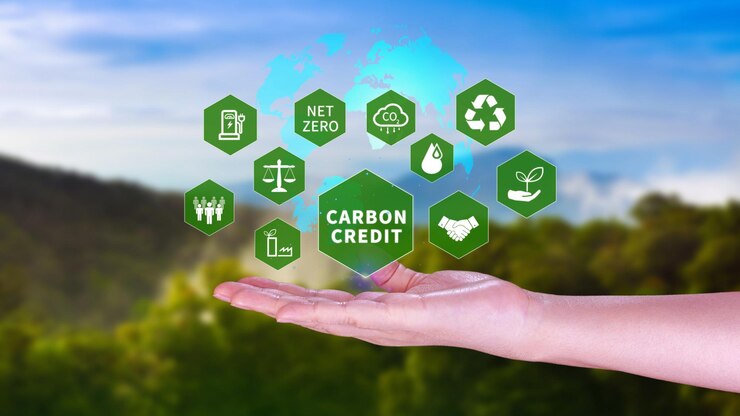The Importance of Third-Party Assurance in ESG Reporting
How Independent Audits Build Trust in Sustainability Disclosures

Imagine this: You’re an investor scanning a company’s sustainability report. It’s brimming with bold claims—net-zero by 2030, ethically sourced materials, a diverse workforce. The numbers look impressive, the graphs are sleek, and the mission statement glows with purpose. But then you pause. How do you know it’s true? In a world where “greenwashing” scandals make headlines and skepticism runs high, those glossy pages start to feel flimsy without proof. Welcome to the trust crisis gripping ESG reporting—a crisis that third-party assurance is uniquely poised to solve. As companies race to showcase their environmental, social, and governance (ESG) credentials, independent audits are emerging as the linchpin that transforms promises into credibility, ensuring stakeholders can believe what they read.
The Rise of ESG Reporting and the Trust Gap
ESG reporting has evolved from a niche practice to a mainstream expectation. According to a 2023 PwC survey, 76% of global investors consider ESG factors when making investment decisions, and regulators like the European Union’s Corporate Sustainability Reporting Directive (CSRD) are mandating detailed disclosures. Companies now publish annual sustainability reports packed with data on carbon emissions, diversity metrics, and governance policies. But as the volume of ESG data grows, so does the risk of inconsistency, exaggeration, or outright falsehoods.
The term “greenwashing” has entered the corporate lexicon for a reason. High-profile cases—like when a major energy firm was accused of overstating its renewable energy investments—have eroded confidence in self-reported ESG claims. Stakeholders want assurance that a company’s net-zero pledge isn’t just a marketing ploy or that its supply chain ethics hold up under scrutiny. This trust gap poses a challenge: how can businesses prove their ESG commitments are genuine? Enter third-party assurance.
What Is Third-Party Assurance?
Third-party assurance involves an independent entity—typically an audit firm, certification body, or specialized consultancy—reviewing a company’s ESG data, processes, and disclosures. Unlike internal audits, which can be swayed by organizational bias, third-party assurance brings objectivity. Auditors assess whether a company’s claims align with recognized standards, like the Global Reporting Initiative (GRI), the Task Force on Climate-Related Financial Disclosures (TCFD), or the Sustainability Accounting Standards Board (SASB). They verify data accuracy, evaluate methodologies, and ensure compliance with regulatory or voluntary frameworks.
The process can vary in scope. Limited assurance offers a high-level review, confirming that nothing glaringly contradicts the reported data. Reasonable assurance, the gold standard, involves deeper testing and provides a stronger endorsement of accuracy. Either way, the outcome is a public statement or certification that stakeholders can rely on.
Why Third-Party Assurance Matters

1. Building Stakeholder Trust
Trust is the currency of ESG. Investors won’t pour capital into a firm they suspect of inflating its sustainability credentials. Customers won’t buy from brands they perceive as inauthentic. Independent assurance bridges this gap by offering an unbiased stamp of approval. When a reputable third party validates that a company’s carbon footprint calculations are sound or its labor practices meet ethical standards, stakeholders gain confidence. A 2024 Deloitte report found that 68% of institutional investors view third-party assurance as a critical factor in assessing ESG performance.
2. Mitigating Risk
Inaccurate ESG reporting isn’t just a PR problem—it’s a legal and financial liability. Regulators are cracking down, with the U.S. Securities and Exchange Commission (SEC) proposing rules to penalize misleading climate disclosures. Third-party assurance acts as a safeguard, identifying errors or gaps before they become costly scandals. For example, an independent audit might catch overstated emissions reductions, sparing a company from fines or reputational damage.
3. Enhancing Comparability
ESG data is notoriously inconsistent across industries and regions. One firm’s “sustainable” might be another’s “business as usual.” Third-party assurance aligns disclosures with standardized frameworks, making it easier for investors and analysts to compare apples to apples. This comparability is vital as ESG metrics increasingly influence stock valuations and credit ratings.
4. Driving Internal Accountability
The assurance process doesn’t just benefit external audiences—it forces companies to get their house in order. Preparing for an audit requires robust data collection, clear governance structures, and defensible methodologies. This rigor can uncover inefficiencies or blind spots, prompting meaningful improvements in sustainability practices.
The Challenges of Third-Party Assurance
Despite its benefits, third-party assurance isn’t a silver bullet. For one, it’s not cheap. Small and medium-sized enterprises (SMEs) may struggle to afford the fees charged by top-tier audit firms, creating an uneven playing field. Additionally, the ESG landscape is still maturing—standards and metrics evolve rapidly, and auditors must keep pace. There’s also the risk of “assurance washing,” where companies cherry-pick friendly auditors to rubber-stamp weak disclosures.
Scope is another hurdle. Many assurance engagements focus narrowly on environmental data (like emissions) while glossing over thornier social or governance issues (like human rights in supply chains). Stakeholders need to push for comprehensive audits that leave no stone unturned.
Real-World Impact: Assurance in Action

Consider the case of a global retailer that faced backlash over alleged labor abuses in its supply chain. In response, it commissioned a third-party audit aligned with the UN Guiding Principles on Business and Human Rights. The audit not only verified improvements but also highlighted areas for further action, earning praise from NGOs and investors alike. Similarly, a tech giant used independent assurance to validate its renewable energy claims, bolstering its reputation as a climate leader. These examples show how assurance can turn skepticism into support.
The Future of ESG Assurance
As ESG reporting becomes more regulated and standardized, third-party assurance will likely grow from a voluntary best practice to a mandatory requirement. The International Auditing and Assurance Standards Board (IAASB) is already developing ESG-specific guidelines, signaling a shift toward greater accountability. Technology will play a role too—AI and blockchain could streamline data verification, making assurance faster and more cost-effective.
For companies, the message is clear: investing in third-party assurance isn’t just about compliance—it’s about staying competitive. In a world where trust is scarce, independent validation sets leaders apart from laggards. Consumers, investors, and regulators are watching, and they’re not easily fooled by unchecked promises.
Conclusion
ESG reporting is no longer optional, but neither is the need for credibility. Third-party assurance offers a powerful tool to close the trust gap, ensuring that sustainability disclosures are more than just words on a page. By subjecting their ESG claims to independent scrutiny, companies can prove their commitment, mitigate risks, and unlock new opportunities. It’s an investment in transparency that pays dividends in reputation and resilience.
As the stakes of sustainability rise, so does the value of assurance. Businesses that embrace it will not only survive the scrutiny—they’ll thrive in a marketplace that demands authenticity. In the end, trust isn’t given; it’s earned, and third-party assurance is how companies can earn it.




